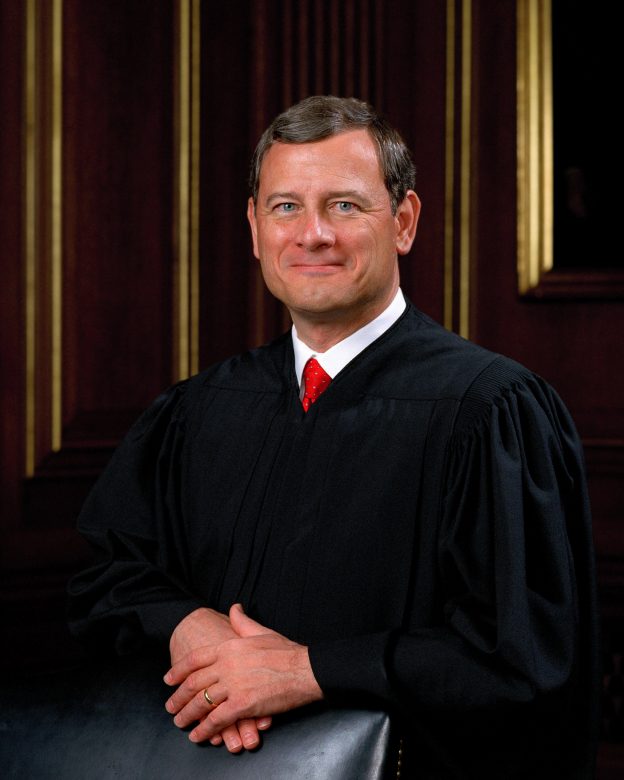It’s hard not to warm to Judge John G. Roberts Jr. His poised and humble demeanor accentuates the lack thereof in Charles Schumer and Joe Biden. He doesn’t display the two Democrats’ detestable uppityness. He’s also easy on the eye. (So he pancaked his face a bit. That’s nothing compared to Botox Babe, House Democratic Leader Nancy Pelosi.) I like that he never gets defensive.
Ditto for what he had to say about the case of Kelo v. the City of New London. As if the public-use clause was not bad enough, The Court, as I understood it (perhaps I didn’t), affirmed the transfer of private property from one invariably reluctant owner to another eager and well-connected one. All for the Common Good. In no way can this decision be framed as deference to Connecticut’s sovereignty. This might have been the case had The Court declined to consider the case. Kelo, to all intents and purposes, has nationalized such unjust takings. In any event, Roberts retorted by reminding Congress of its duty to step in and uphold rights. Not bad.
I liked the way he responded to Republican Arlen Specter’s petulant demand that Congress be coddled. The chairman of the Judiciary Committee asked that Roberts not consider his method of reasoning superior to that of Congress. (From where did that come? Specter’s Inner Child? Maybe it’s an inside joke.) Roberts reverted masterfully to the Constitution, and spoke about “institutional competence,” as opposed intellectual competence (neither of which the Congressional clowns possess).
The overweening Biden was knocked out nicely. He ventured that Roberts owed the electorate more than he was giving up. Roberts reminded blowhard Joe that he was not standing for an election. Rather, if confirmed, he’d be going on the bench to adhere to a judicial process—an impartial one, not predicated on promises made to special interests.
When asked about free speech, he quoted jurist Louis Brandeis’ “sunlight is the best disinfectant.” Again, good move.
But, here’s the thing that unsettles: Roberts seems to be all about the moves. Is that good?
Some Senator, whose name I can’t recall, posed The Mother of All Questions (in my decidedly unmainstream opinion). This good fellow asked Roberts whether the Administrative State under which we strain comports with the Constitution and the Founders’ vision. The Managerial State—its endless rules and regulations—whence does it derive its legitimacy? It wasn’t that Roberts was flummoxed by this First-Principles quandary; it just seemed alien to him. It swooshed right by. He answered what was a philosophical question with a legalistic ramble about administrative law. I find it hard to believe such a gifted man would misconstrue so simple a question. So I worry.
William Rehnquist did not believe the procedures governing bureaucracy-stiffened administrative agencies encapsulated the Constitution’s original scheme. In a superb (and stylish) piece in The Wall Street Journal, Randy Barnett elaborated on the late Chief Justice’s “New Federalism.” Case by case Rehnquist had begun to resurrect the eternal verities of limited and delegated federal power and States’ Rights. Lo and behold: in attempting, piecemeal, to revive the notion of a constitutionally limited government, Rehnquist even deferred increasingly to the 10th Amendment, which has been mocked out of meaning. He also did a great deal to reverse “interstate commerce” judicial abominations.
As affable as he is, Roberts, regrettably, is no Janice Rogers Brown. Their devotion (and dotage) prevents President Bush’s lickspittles from realizing that he too considers Rogers Brown “outside the mainstream,” to use the Democrats’ demotic line. Let’s hope, at the very least, that Roberts is a Rehnquist.

